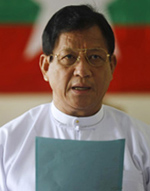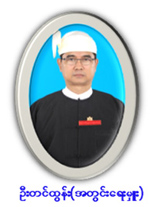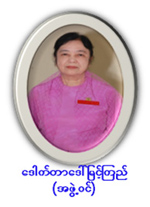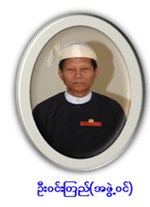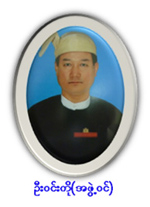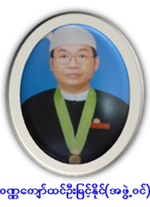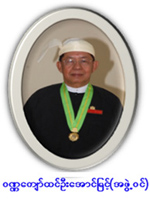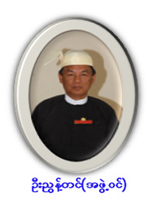RANGOON — Several Rangoon-based activists said they have started a campaign to call for the replacement of the members of the Union Election Commission (UEC) in order to ensure that the commission will be an independent arbiter during the general elections later this year.
“We are explaining to the public first that the UEC is not independent, and if they agree with us we collect their signatures to demand reforms to the commission,” said Myat Kyaw, a spokesman of the Mass Movement Acceleration Network, which began the campaign on Sunday.
“The current UEC’s chairman [Tin Aye] is a former general, who was also a lawmaker and one of the ruling Union Solidarity and Development Party leaders. He quit [the party] before being appointed as UEC chairman,” Myat Kyaw said. He added that there was also a lack of independence at the lower levels as former and active military officers had been appointed to district and township election commissions.
“The commission that will supervise the nationwide election should be formed with independent experts who were not members of any party. So we are asking for reform,” he said. “The commission comprises persons from the military, USDP, and others. How can that kind of commission organize a fair election? I don’t think they will.”
Myat Kyaw said that following a public talk on Sunday in Rangoon’s Dagon Seikkan Township activists gathered around 200 signatures. More talks and petition activities would be held in Thingangyun, South Okkala, Tamwe and Dawbon townships in the coming weeks.
The activists said they planned to send the collected signatures to the President’s Office and would organize demonstrations if their demands are not met.
Min Zayar, one of the leaders of the 88 Generation Peace and Open Society who spoke during Sunday’s talk, said, “If we look at the background history of the commission members and their current performances, the conditions to trust them are not there.”
Burma’s military-drafted 2008 Constitution states that the president shall constitute the commission. The charter sets out a number of conditions on those deemed suitable for appointment to the UEC, including clauses that ban members of political parties or lawmakers.
In 2013, more than 60 army officers were transferred to the civil administration and appointed to district- and township-level election commissions. The move was criticized by some as an attempt by the USDP to prepare in advance for the coming parliamentary election in 2015.
Ye Kyaw Swar Myint, executive director of the People’s Alliance for Credible Elections, said he understood the concerns among activists and the public regarding a potential lack of independence on the part of the commission, in particular since Tin Aye made controversial remarks last year.
“The commission needs to prove that they are independent. When they release a code of conduct for us [election observers], they should also have a code of conduct for themselves and announce it publicly,” said Ye Kyaw Swar Myint, whose NGO is cooperating with the commission in order to act as an independent election observer.
In December, Tin Aye drew criticism from political opposition parties when he publicly defended the Burma Army’s continued role in politics and he raised the prospect of a military coup in the case of political or ethnic turmoil in the country. In April, he raised eyebrows when he said that military lawmakers would leave Parliament “only when democratic standards are high.”
The Union Election Commission: A Profile






